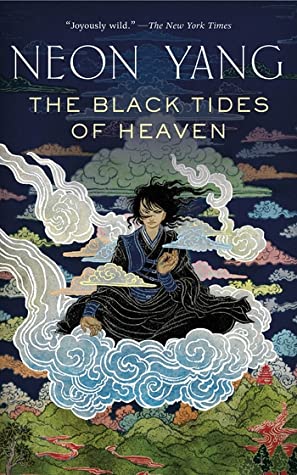enne📚 reviewed The Black Tides of Heaven by Neon Yang (Tensorate, #1)
The Black Tides of Heaven
3 stars
I'm reading the Tensorate novellas as part of the SFFBookClub's "sequel month". I've read this once upon a time in the past, but haven't read the other three yet.
I enjoyed this book a good bit, but mostly as a setup for future novellas. This book follows twins Mokoya and Akeha who are under the thumb of their mother the head of the Protectorate. Thematically, the book is about resisting the will of fate, against prophetic visions that Mokoya has but also arguably against the inexorable will of their mother. It's also a story of the resistance of common people against the will of an empire that controls magic.
I think the novella does a lot of work of worldbuilding and characterization in its short length. If I had any criticism, it's that it is much more focused on hitting emotional beats than about narrative beats. The sections skip through time as Mokoya and Akeha grow up to give a picture of their story, but the plot itself meanders and feels disjointed. Emotionally, the final scenes all hit their mark but the worldbuilding historical details and plot were not as tight as I wanted and left me wanting to know more about how we arrived at each moment.
There were some fun gender bits to this world that I quite enjoyed. In this world, kids grow up ungendered and puberty is postponed with magic. At some point, children choose to "be confirmed" in a particular (binary) gender which also involves some magic rearranging of their body. It's certainly a trans dream to have choose-your-own-puberty. It's an interesting choice to me as well that this world (so far?) also seems to prioritize binary gender as an expected outcome for all children. One character who has chosen not to be confirmed seems to have some shame (or at least expect criticism) for deciding to do that.
I'll be interested to see if the binary gender focus is due to the focus of this particular novella (maybe this is a cultural part of this protectorate region or time period) or if the friction against non-binary identities and bodies is an ongoing piece of the rest of the novellas. (Given that Neon Yang is themselves non-binary, it certainly feels to me like an exploration of this friction rather than some unfortunate authorial view.)

